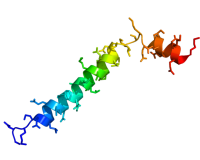Introduction
Peptides play a crucial role in injury repair and regeneration of damaged tissues. This blog post will explore the science behind peptides and their potential to promote healing and reduce inflammation. Discover how these tiny molecules can revolutionize how we approach injury treatment and recovery. Stay tuned for an informative and expertly written discussion on the best healing peptides for injury repair.
Recovering from Physical Injuries
Recovering from physical injuries requires understanding the healing process of connective and muscle tissue. Commonly, injuries cause strains or sprains in tendons and ligaments, leading to pain and inflammation followed by new cell regeneration and remodeling. The objective is to facilitate normal tissue repair to enhance the healing process. Various therapies are available, but a more effective approach would be to enhance the repair and regeneration process. With a focus on promoting the normality of tissue repair, the tissues can regain their previously organized and functional capacity. It’s important to note that accurate data and a logical approach are essential for a successful recovery.
Peptides for Injury Repair
Physical injuries can range from mild to severe and cause immense pain and discomfort. To aid in recovery, peptides have proven effective in stimulating tissue repair and reducing inflammation. The use of peptides for injury repair is becoming increasingly popular due to their ability to stimulate collagen production and other proteins needed for repair. This helps improve skin elasticity, reduce wrinkles, and promote healing from tissue damage or injuries.
Peptides are chains of amino acids that play a crucial role in the body’s natural healing process. They are naturally present in the body, but when applied externally and taken as supplements, they can work faster and more effectively. They are essential for repairing damaged tissues and promoting cell growth. In the case of injury, peptides stimulate the production of collagen, a crucial protein in healing bones, tendons, and ligaments.
They also enhance blood flow and oxygenation to the affected area, leading to a faster and more effective healing process. Using peptides in injury repair has shown promising results in reducing pain and inflammation, promoting tissue regeneration, and improving mobility. This makes peptides a promising alternative to traditional treatments, such as surgery or drug therapy. Research is ongoing into how peptides can improve recovery and reduce inflammation.
Peptides show great potential in the medical field, offering hope for treating injuries more quickly and effectively. However, it is important to note that peptide therapy should be done under the guidance of a healthcare professional, as incorrect usage can lead to adverse effects. By incorporating peptides into your injury recovery regimen, you can speed up the healing process and return to your normal routine in no time.
Best Healing Peptides for Injury Repair & Recovery
Healing peptides are a powerful tool for injury repair and recovery. The best peptides for injury repair include:
● Mechano Growth Factor
MGF is a highly effective peptide for injury repair and recovery, especially for muscular injuries. It triggers the activation of satellite cells, essential for repairing damaged muscles and promoting growth. MGF has also been shown to enhance recovery and improve strength after injury.
● Thymosin Beta 4
Thymosin Beta 4 is a naturally occurring peptide that plays a critical role in healing. It has been shown to promote cell migration, angiogenesis, and tissue remodeling, making it a crucial player in the repair of damaged tissues. Thymosin Beta 4 has also reduced inflammation and improved wound healing.
● Collagen
Collagen is a vital protein that provides structure and strength to our skin, bones, and connective tissues. In injury repair and recovery, collagen plays a crucial role in forming scar tissue, which is essential for healing. Collagen supplements have been shown to enhance wound healing and improve skin health.
● Glutamine
Glutamine is an essential amino acid that plays a key role in protein synthesis and cell metabolism. In injury repair and recovery, glutamine has been shown to enhance muscle growth, reduce inflammation, and improve immune function. Glutamine supplementation has also improved wound healing and reduced muscle wasting after injury.
● BPC-157
BPC-157 is a short peptide that has been shown to promote wound healing, reduce inflammation, and improve tissue repair. It treats various injuries, including muscle, ligament, and tendon injuries. BPC-157 has also been shown to improve chronic wound healing and tissue regeneration.
● Insulin-Like Growth Factor 1
IGF-1 is a hormone-like peptide critical in regulating cell growth and development. In injury repair and recovery, IGF-1 has been shown to enhance tissue regeneration, promote cell growth, and improve wound healing. IGF-1 supplementation has also improved muscle growth and reduced muscle wasting after injury.
● CJC-1295/Ipamorelin
CJC-1295/Ipamorelin is a combination of two growth hormone-releasing peptides that have been shown to enhance the healing process after injury. This combination has increased muscle growth, reduced inflammation, and improved tissue repair. CJC-1295/Ipamorelin has also improved wound healing, reduced muscle wasting, and enhanced immune function.
● TB-500
TB-500 is a synthetic version of Thymosin Beta-4, a naturally occurring peptide in the body. It has been shown to have a wide range of healing properties, particularly in injury repair and recovery. TB-500 can stimulate cell migration and proliferation, increase extracellular matrix production, and enhance angiogenesis (the growth of new blood vessels). These properties make it ideal for treating tendons, ligaments, and muscle injuries.
Conclusion
Peptides hold immense potential for injury repair, and their use is increasing in the medical field. Research has shown that peptides can aid in healing, reducing inflammation, and promoting tissue regeneration. They are also a natural alternative to traditional medications and treatments. Additionally, they have minimal side effects, making them a safe and effective alternative to traditional injury treatments.
With continued research and technological advancements, we can expect to see more effective peptides for injury repair. The key to unlocking their full potential is understanding their action mechanism and the best ways to utilize them in injury repair. So, if you want to speed up your injury recovery, consider using one of these powerful healing peptides.




